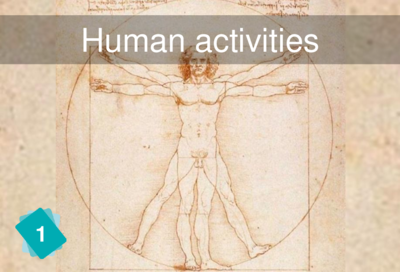En-en adult card 1 human activities: Difference between revisions
Jump to navigation
Jump to search
No edit summary |
(correction of links) |
||
| Line 11: | Line 11: | ||
This card can be considered: | This card can be considered: | ||
* either as the '''cause''' of all the economic sector cards ([[ | * either as the '''cause''' of all the economic sector cards ([[En-en_adult_card_2_industry|Industry]], [[En-en_adult_card_3_building|Building Usage]], [[En-en_adult_card_4_transportation|Transportation]], [[En-en_adult_card_8_agriculture|Agriculture]]), | ||
* or as a '''heading''' for these cards (in which case they can be grouped together and circled). | * or as a '''heading''' for these cards (in which case they can be grouped together and circled). | ||
| Line 18: | Line 18: | ||
=== Causes === | === Causes === | ||
* [[En- | * [[En-en_adult_card_5_fossil_fuels|Fossil Fuels]] One can wonder whether human activities use fossil fuels or fossil fuels enable human activities. Do not waste time on this debate and put these two cards together if necessary. When I sing in my garden, I carry out a human activity without fossil fuels. When windmills or water mills produced flour, they did not use fossil fuels. Luckily, there are still many human activities that do not use fossil fuels. | ||
* [[En- | * [[En-en_adult_card_40_armed_conflicts|Armed Conflicts]] This is the Club of Rome feedback loop! The system will eventually regulate itself, but not necessarily gently. Players often make this connection and sometimes even suggest rolling up the collage to connect the beginning and the end. Moreover it is interesting notice that humankind appears in the first and last cards, but not in the middle. | ||
=== Consequences === | === Consequences === | ||
* [[ | * [[En-en_adult_card_25_terrestrial_biodiversity|Terrestrial Biodiversity]] Humans occupy almost all available space on Earth, leaving no room for animals and plants. This entails the disappearance of natural habitats and it is the main cause of biodiversity loss today, well ahead of climate change. | ||
* [[En- | * [[En-en_adult_card_27_marine_biodiversity|Marine Biodiversity]] With this link, we highlight all the degradations that humans are inflicting on marine life such as plastic pollution and overfishing. It's irrelevant to climate change, but it's interesting to make the connection anyway. | ||
== References == | == References == | ||
Revision as of 16:20, 31 January 2021
Card #1: Human activities
| Causes | Consequences | |
| None | 
|
This is where it all begins...
Explanation
This is where it all begins... It is also where 5th IPCC report begins. In the foreword of the report, it is stated that "the science now shows with 95 percent certainty that human activity is the dominant cause of observed warming since the mid-20th century".[1]
This card can be considered:
- either as the cause of all the economic sector cards (Industry, Building Usage, Transportation, Agriculture),
- or as a heading for these cards (in which case they can be grouped together and circled).
Other possible links
Causes
- Fossil Fuels One can wonder whether human activities use fossil fuels or fossil fuels enable human activities. Do not waste time on this debate and put these two cards together if necessary. When I sing in my garden, I carry out a human activity without fossil fuels. When windmills or water mills produced flour, they did not use fossil fuels. Luckily, there are still many human activities that do not use fossil fuels.
- Armed Conflicts This is the Club of Rome feedback loop! The system will eventually regulate itself, but not necessarily gently. Players often make this connection and sometimes even suggest rolling up the collage to connect the beginning and the end. Moreover it is interesting notice that humankind appears in the first and last cards, but not in the middle.
Consequences
- Terrestrial Biodiversity Humans occupy almost all available space on Earth, leaving no room for animals and plants. This entails the disappearance of natural habitats and it is the main cause of biodiversity loss today, well ahead of climate change.
- Marine Biodiversity With this link, we highlight all the degradations that humans are inflicting on marine life such as plastic pollution and overfishing. It's irrelevant to climate change, but it's interesting to make the connection anyway.
References
- ↑ IPCC, 2013: Climate Change 2013: The Physical Science Basis. Contribution of Working Group I to the Fifth Assessment Report of the Intergovernmental Panel on Climate Change [Stocker, T.F., D. Qin, G.-K. Plattner, M. Tignor, S.K. Allen, J. Boschung, A. Nauels, Y. Xia, V. Bex and P.M. Midgley (eds.)]. Cambridge University Press, Cambridge, United Kingdom and New York, NY, USA, 1535 pp. Foreword